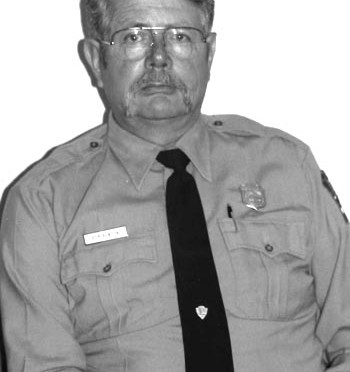So you were an interpreter that first summer?
Yes.
Were they, at that time, expected to be subject-matter specialists?
You have to remember that the term “naturalist” [means different things] in the sense of the folks that float around Yosemite and Yellowstone and some of the other [parks]. I was never convinced, and have never been, that the subject-matter specialist was nearly as pronounced as people think it was. There were an awful lot of people out there that were interpreters that weren’t “subject-matter specialists.” What they did have was a degree in a biological science or geology. In other words, you didn’t find someone who had majored in law enforcement interpreting. But you might well find a person who was a biologist that interpreted geology.
Perhaps a little more focused than today, as far the degrees go, but not necessarily subject matter?
Exactly. Sure, there were those people who were like Louie Shellback at Grand Canyon, who I suppose in his day knew more about Grand Canyon than anybody. That doesn’t mean that all the interpreters down at the Grand Canyon were [as knowledgeable as Shellback]. For the most part, though, they all had a biological or natural science background.
What were the main changes you witnessed in the NPS from 1962 to 1972?
You are really talking about radical changes that occurred in that period of time. In that early 60’s period, you saw people that were fairly specialized. They had a degree in natural science, both the rangers and the interpreters tended to have a similar background. They could be, for the most part, largely interchangeable. Speaking of the naturalists, the way most people got an interpretative position was to come from the ranger ranks because there were more rangers than interpreters. I played around with that for a while because I truly did really like interpretation. I was hired on as a ranger. I thought of gradually inching over towards interpretation. In fact, I cut a deal with the superintendent at Everglades to do some interpretation as a ranger. The naturalist at Everglades at that time said no way, you were either fish or fowl. You simply didn’t cross over. By the time that ’72 had come around, much had happened. You’d gotten into the technician series (1). The service had expanded very rapidly. There were many more people out there and a larger mission in the sense of the recreation areas. Interpreters were more diverse people than rangers were. There were a lot of things happening in those days.


